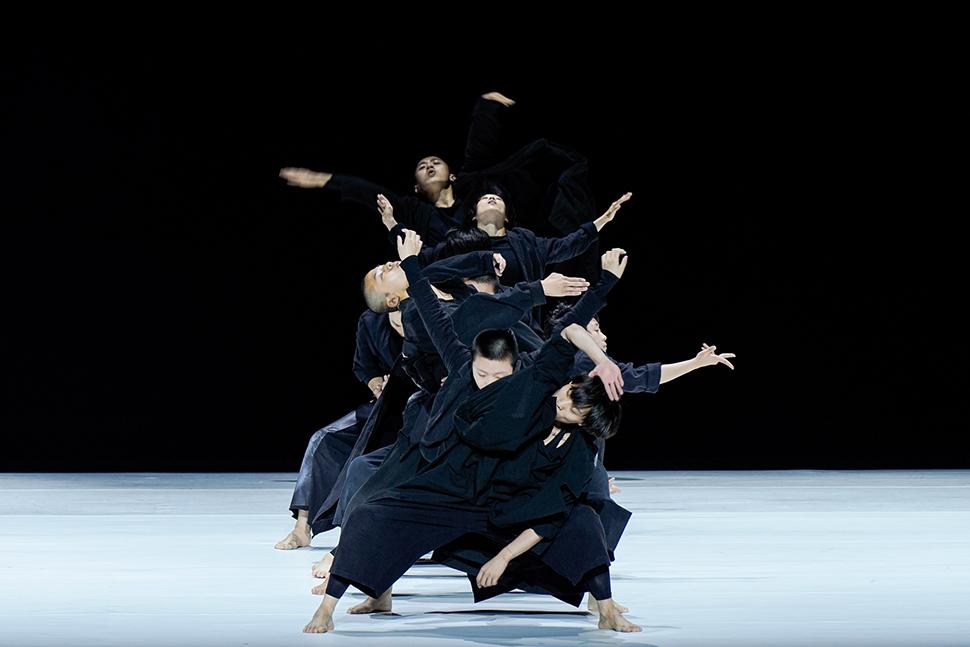| Year/Length: | 2021, 60’ (Italian premiere) |
|---|---|
| Choreography: | Tao Ye |
| Music composition: | Xiao He |
| Lighting design: | Ma Yue, Tao Ye |
| Costume design: | Duan Ni |
| Costume tailoring: | DNTY |
| Dancers: | Huang Qiqi, Yan Yulin, Xu Fujin, Tong Yusheng, Li Siyu, Liu Yiren, Sun Leirui, Wu Zhenkai, Li Jiayu, Cheng Leting, Wan Lu |
| Artistic direction: | Tao Ye, Duan Ni |
| Company management: | Wang Hao |
| Rehersal direction: | Huang Qiqi |
| Technical direction: | Ma Yue |
| Produzione e direzione progettuale: | Jun Jun |
| Executive coordination: | Tai Yuanxu |
| Visual direction: | Fan Xi |
| DNTY managing direction: | Ning He |
| Tour coordination: | Jun Jun, Tai Yuanxu |
| In collaboration with: | Fondazione Teatro La Fenice |
TAO Dance Theater - 11

Description
Buy tickets
Winners of the 2023 Silver Lion, the TAO Dance Theater is a Chinese dance company based in Beijing. Founded in 2008 by the choreographers Tao Ye, Duan Ni and by the producer Wang Hao, the company has an innovative approach to movement, a body technique known as “Circular Movement System”. At its roots is the idea of pure dance, achieved through the “ritualistic repetition of the body’s natural movements”, invoking the spectators’ capacity to concentrate on the essential nature of the repeated gesture, devoid of any ornament.
Invited onto the most important stages of the world, from the Lincoln Center Art Festival of New York to Sadler’s Wells Theatre in London, as well as the Sydney Opera House and the Théâtre de la Ville in Paris, in Venice the TAO Dance Theatre presents 11, 13 and 14, three works from the Series of Numbers, a choreographic series begun in 2008 which, with its minimalist aesthetic, further codified Tao Ye and Duan Ni’s method, achieving an exasperated repetition that seeks truth in the body.
Inspired by the symmetry intrinsic to the number itself, 11 (2021) reflects upon the expression of the individual introduced into a collective context. Just like the two digits that compose the number 11 remain independent of one another while mirroring each other, in the same way the 11 dancers on stage move the lower part of their bodies (hips, knees, feet) on the basis of a rigorously detailed choreography, leaving the upper part of the body (shoulders, elbows, wrists, bust, spine and head) free to express itself independently. Seeking a point of balance between individual nature and the order of the group.